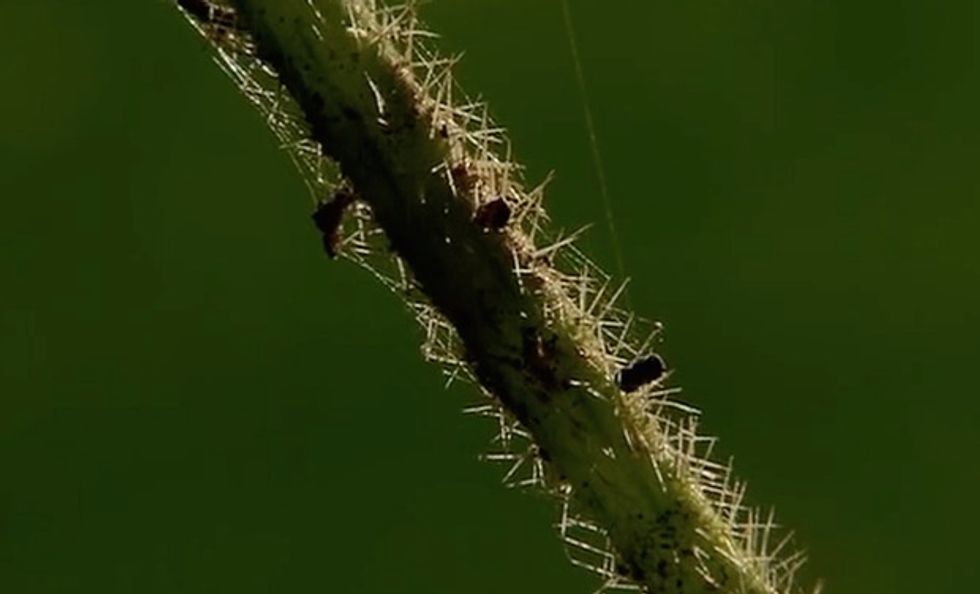
Image source: YouTube

The heart-shaped leaves of Australia's Gympie-Gympie tree seem innocent enough. However, the leaves, stems and even the fruit of the green plant from the nettle family are covered in tiny needles capable of delivering a powerful neurotoxin capable of killing horses and dogs, and driving humans crazy with pain.

According to ecologist Dr. Marina Hurley, the Gympie-Gympie tree is "world's most painful tree to touch." It also happens to be native to the Australian rainforest in Queensland, in areas regularly visited by tourists.

Casual contact with the vegetation of the stinging tree is all you need to have the stickers, described as "miniature hypodermic needles," pierce your skin and begin releasing the nasty compound known as moroidin into your system.
Avoiding making contact with the Gympie-Gympie tree in the rainforest requires wearing protective gear like heavy-duty gloves and facemasks. Breathing in the tiny needles can cause some serious sneezing fits and severe nosebleeds.

Dr. Hurley has been studying the toxic plant for decades, and has been stung repeatedly. One encounter was serious enough to force the researcher to be hospitalized. She described the pain as "bad or worse as childbirth" and like having your skin "burnt and having acid on you at the same time."
In addition to the danger posed by brushing against the plant, Hurley states its toxin is "chemically stable," meaning the dried plant is just as dangerous as the ones found in the jungle. Samples collected nearly a century ago still carry the neurotoxin.

Hurley has found some native animals are immune to the toxins found in the tiny needles. While horses and dogs have been killed by the Gympie-Gympie trees, both the green ringtailed possum and red-legged pademelon (a rainforest kangaroo) use them as a food source without any complications after ingesting the moroidin.
The stings of the Gympie-Gympie plant are felt within seconds of touching the silicone-like needles. Victims are advised to remove them as soon as possible, using the same kind of hair removal strips found at day spas. This tool is reportedly included in the first aid kits found on ambulances in Queensland.
Oddity Central reports the plant is also found in Indonesia and is capable of growing as tall as two meters in height.
Watch a segment from a French documentary featuring Dr. Hurley talking about the stinging trees:
(H/T: Treehugger)
__
Follow Mike Opelka (@Stuntbrain) on Twitter.